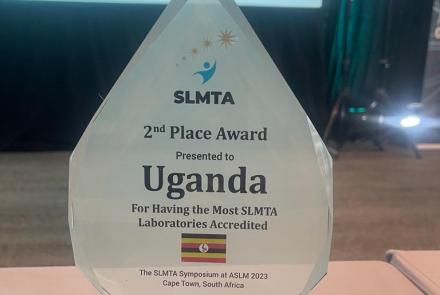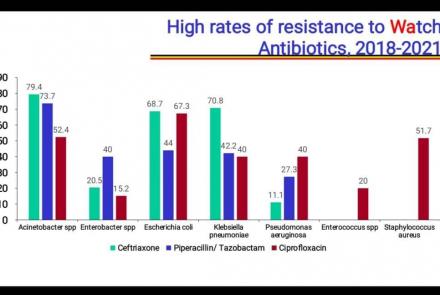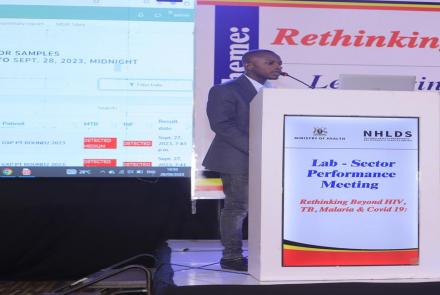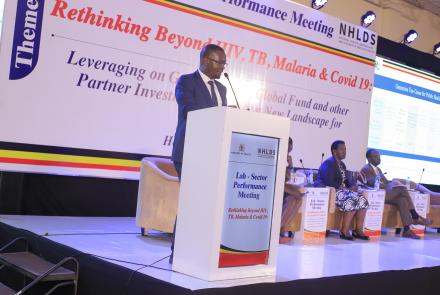
HIGH LEVEL SYMPOSIUM ON LAB DIAGNOSTIC STRATEGY FOR ERADICATION OF HIV, TB and MALARIA
The high level symposium on Lab diagnostic gathered a number of stake holders with the aim of eradicating HIV, TB and malaria within a specified period of time.
The Honorable Minister of Health, Dr. Jane Ruth Aceng who represented our Guest of Honor the Prime Minister took the opportunity to welcome all to this important meeting. She went on to say that the UNHLS team is strongly committed to providing stewardship for the National Health Laboratory Network in guiding the prevention of disease and promotion of healthy and productive livelihood in Uganda through early detection of disease (s) in order to achieve sustainable development goals.
UNHLS/CPHL together with development partners has made commendable effort towards improvement of health for people of Uganda through developing policies and establishing appropriate programs to ensure proper implementation of laboratory services eg the centralized Viral load testing
To achieve this through all levels in the tiered network, we need to function collectively and effectively in order to provide quality laboratory services and this includes the POC services that provide increased access to diagnostic services
Elimination of HIV/AIDS, TB, Malaria and other infectious diseases can only be achieved through among others, a strengthened laboratory network comprised of both conventional and Point-of-Care (POC) technologies. Recently, we developed a policy on use of POC technologies that provides clear guidance on selection and deployment of test equipment and methods. We now evaluate, validate and/or verify test methods, equipment and devices before they are put into use.
With the planned scale up of POC in the country, we shall ensure, policies, standard operating procedures and job aides are in place to provide the necessary guidance. Training and competency assessments of the personnel conducting the testing will be necessary to ensure that tests are carried out correctly and the results obtained are accurate and reliable.
Quality assurance systems and data management systems will be in place to manage the many different testing platforms and we shall provide on-site support and supervision
With support from our health development partners, we hope to maintain a stable supply chain management system to ensure uninterrupted service delivery.
But critical to the sustainability of this program will be the availability of funding.
In conclusion, the HIV, TB, Malaria and other infectious disease diagnosis are based on results obtained from various testing systems and it is thus of critical importance to ensure that there is a system to assess and confirm that the tests conducted are accurate and reliable, so as to ensure quality patient care and efficient utilization of resources.






